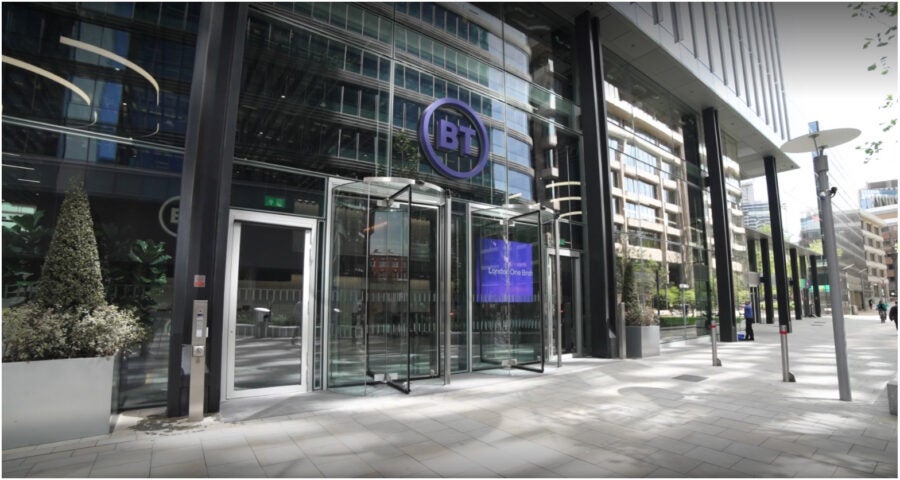
Last week, reports surfaced that BT’s chief human resources officer, Athalie Williams, was stepping down.
Williams’ exit follows a series of recent HR mishaps at the telecoms company. These include BT dropping DEI targets from its management bonus scheme, which undermined comments from the executive who had criticised other companies for watering down diversity efforts.
BT denies these events are connected with Williams’ exit.
I empathise with Williams and the challenges that come with having such a public exit. It’s not every day that a HR leader’s career move grabs national headlines.
But, in truth, whether her departure is indeed linked to these blunders, or is just an ill-timed coincidence, doesn’t matter. The interest in this story speaks volumes about the power of the people function in today’s world.
The importance of a cohesive HR strategy
The media coverage around the incident also underscores the impact that poorly conceived HR initiatives can have on a company’s reputation. Not only is it a stark reminder of the importance of clear, compliant and cohesive HR policies, it also shines a much-needed spotlight on the immeasurable value of a competent and empowered HR team.
This isn’t the first time HR disputes have hit headlines. In 2022, P&O Ferries’ mass dismissal fiasco brought public outrage. Similarly, after BrewDog faced public accusations of a toxic culture, its then chairman Allan Leighton blamed the HR consultancy brought into mediate relations for making the situation worse.
If these high-profile crises tell us anything, it’s that aligning HR with wider business decisions matters. It’s a profession often belittled and beleaguered with questions about the role it serves. But in a post-pandemic labour market, where new flexible working legislation and the employment rights bill are giving employees more power, it’s all the more critical that companies are set up to support staff and steer organisations through legal, cultural and political changes.
The people function plays a critical role in shaping policies, supporting leadership and protecting reputation. Against this backdrop, HR hiccups at organisations of all sizes can have far-reaching implications and put companies under the microscope.
So how can companies avoid BT’s fate?
Respect the HR function
HR isn’t a nice-to-have, it’s a strategic pillar. I’ve worked across startups and scaling firms alike and the organisations that perform best financially and culturally are the ones with trusted, well-embedded people teams. HR isn’t just an admin function, it develops the strategy that allows people to thrive.
Build an HR team early
Smaller businesses often sideline investment in HR until growth or crisis forces their hand, but that’s a risky game. It’s far easier – and cheaper – to build solid foundations early than it is to retrofit policy into a dysfunctional or rapidly evolving structure. Good HR doesn’t mean splashing out on huge salaries or flashy initiatives, it means being compliant, consistent, compassionate and intentional.
Give HR a seat at the table
All too often, HR is kept out of the loop until it’s time to mop up the mess. But the best people teams are embedded in strategic conversations around culture, compliance and reward and risk. When HR and leadership are out of sync, you run the risk of putting out contradictory messages that cause reputational damage and internal confusion. BT’s latest episode is a cautionary tale on what happens when alignment breaks down.
A competent HR team isn’t just a back-office function, it’s the bridge that connects legal, ethical and commercial priorities. They are your culture-shapers, retention strategists and change agents. The best HR leaders understand how to balance commercial imperatives with ethical obligations and they are instrumental in shaping the kind of workplaces where both people and profits thrive. In short, they are the glue that holds organisations together when things get tough.
BT’s predicament stems from a lack of alignment between HR and the rest of the leadership team. When the two work together, the people function doesn’t just support the business, it protects it.
Phil Coxon is managing director at Breathe HR

Last week, reports surfaced that BT’s chief human resources officer, Athalie Williams, was stepping down.
Williams’ exit follows a series of recent HR mishaps at the telecoms company. These include BT dropping DEI targets from its management bonus scheme, which undermined comments from the executive who had criticised other companies for watering down diversity efforts.
BT denies these events are connected with Williams’ exit.





